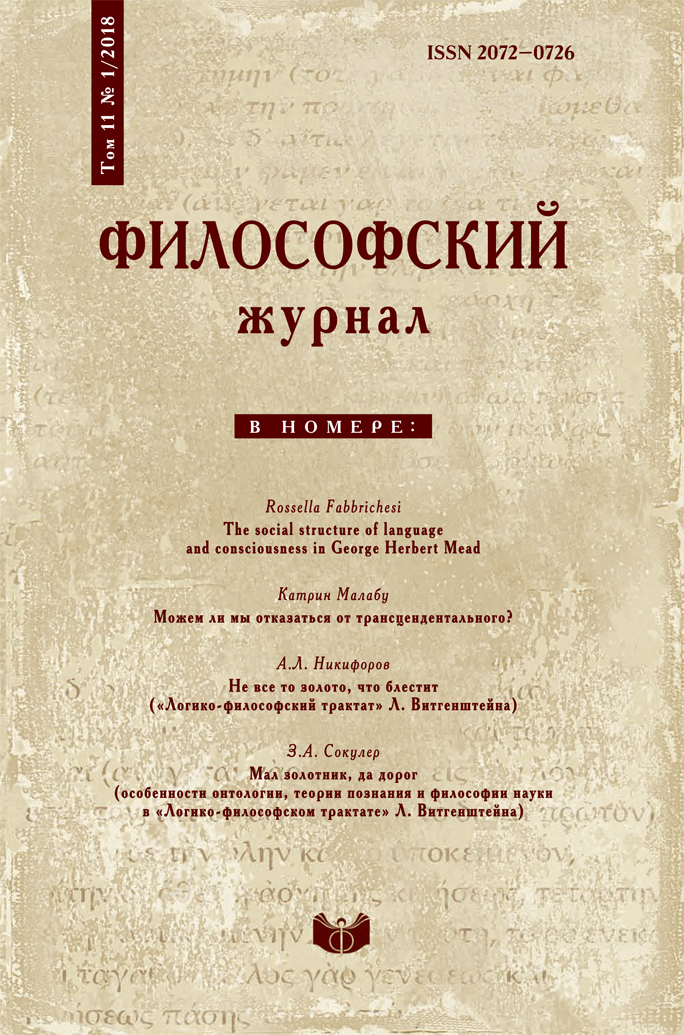Мал золотник, да дорог (особенности онтологии, теории познания и философии науки в «Логико-философском трактате» Л. Витгенштейна)
DOI:
https://doi.org/10.21146/2072-0726-2018-11-1-173-187Ключевые слова:
Витгенштейн, «Логико-философский трактат», логический атомизм, философия, язык, логическое пространство, логика, теория научная, причинность, индукция, теория познания, онтологияАннотация
В статье рассматривается ряд понятий «Логико-философского трактата» Витгенштейна. Показывается, что значение понятия «мир», которым открывается «Логико-философский трактат», полностью раскрывается только тогда, когда речь заходит о лежащем за границей мира. Доказывается, что ни пропозициональная логика, ни классическая первопорядковая логика вообще не имеют никакого привилегированного положения в представлении «логического пространства», в котором находятся и мир, и язык. Обосновывается, что «Логико-философский трактат» не содержит ни онтологии, ни теории познания в обычном смысле. Анализируются возможные мотивы конвенционализма и инструментализма, демонстрируемых Витгенштейном в трактовке научных теорий. Автор статьи показывает, что понимание философии у Витгенштейна принципиально отличается от позитивистского.






